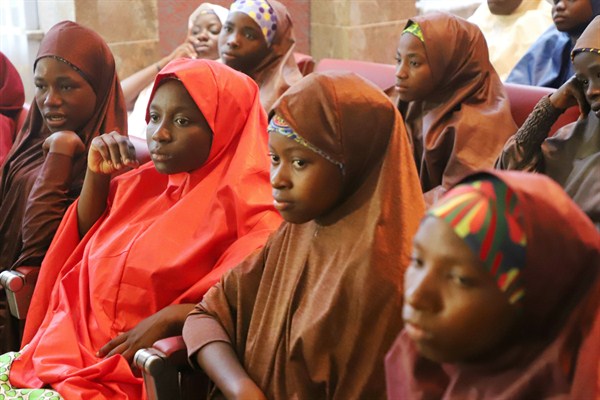On March 23, Nigerian President Muhammadu Buhari declared that his government “is ever ready to accept the unconditional laying down of arms by any member of the Boko Haram group who shows strong commitment in that regard.” Two days later, his information minister, Lai Mohammed, revealed that “unknown to many, we have been in wider cessation-of-hostility talks with the insurgents for some time now.”
The immediate context for Buhari’s offer and Mohammed’s revelation was Boko Haram’s recent kidnapping of 111 schoolgirls in Dapchi, in northeastern Nigeria. The girls were kidnapped in February; the extremist group released most of the girls on March 22—one, a Christian, is still being held, and five reportedly died during their ordeal. The reasons for the release remain a subject of speculation. Was a ransom paid? Mohammed said the cease-fire talks themselves were part of the context for the release: “We were able to leverage on the wider talks when the Dapchi girls were abducted.” His statement, however, raises more questions than it answers.
Despite the relatively speedy resolution of the Dapchi incident, compared with the Chibok kidnapping of 2014, it still highlighted Boko Haram’s continued tenacity, strength and even popularity in parts of far northeastern Nigeria. Buhari has repeatedly pronounced the jihadi group defeated, but such statements ring increasingly hollow. Dapchi also highlights a longer-term trend: Nigerian security forces’ inability to achieve a decisive military victory. Some political solution will be required to end the crisis.

